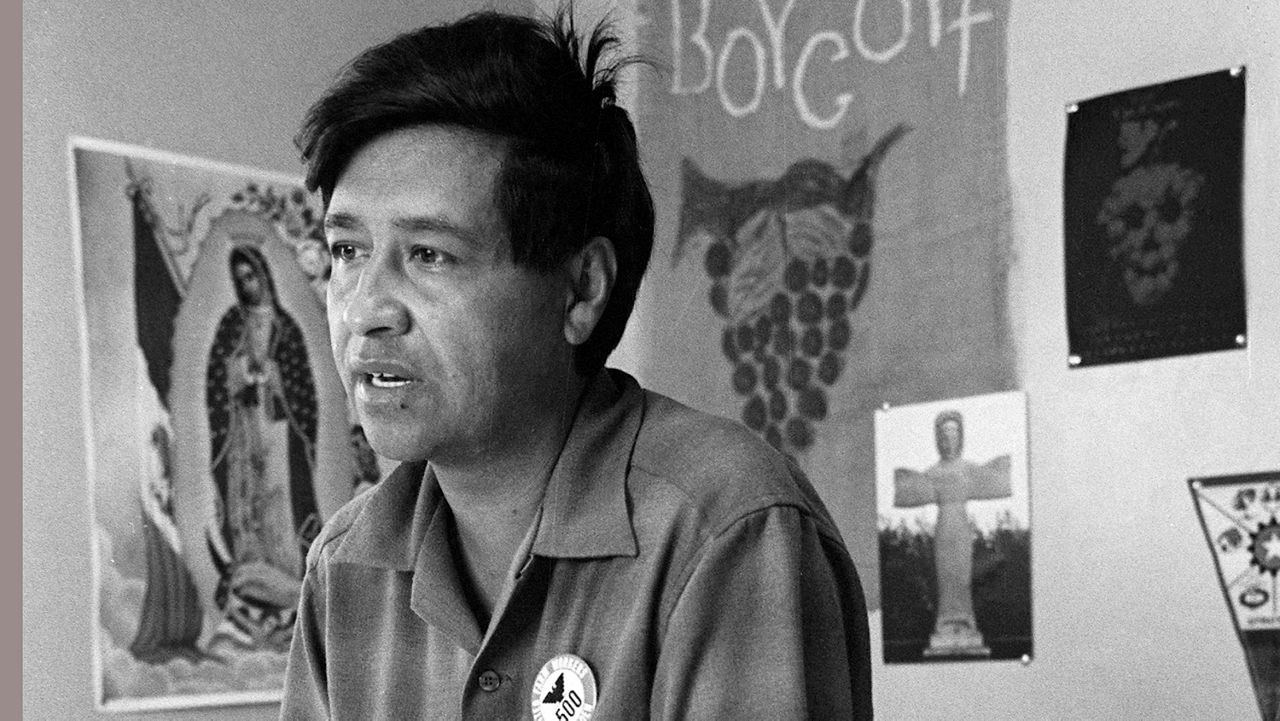AUSTIN, Texas — March 31 is César Chávez Day, picked for the late activist’s birthday. It’s a day to celebrate and remember the lasting legacy of civil rights leader César Chávez, who fought to bring justice to farmworkers across the nation.
Chávez’s activism began when his family lost their farm during the Great Depression and became migrant farm workers to make ends meet. It’s where Chávez experienced firsthand the hardships of being a farm worker, which included unfair wages, no access to bathrooms or breaks, poor or no housing and racism, all of which contributed to a culture of mistreatment.
Chávez helped found the National Farm Workers Association — now known as the United Farm Workers of America (UFW) — in 1962, along with Dolores Huerta and Philip Vera Cruz. The organization became the first successful farm workers' union in American history.
Chávez also began several crucial programs to remedy the injustices suffered by farmworkers in the workplace, including a burial program, the first credit union for farm workers, health clinics, day care centers, job training programs and affordable housing. He then started two Spanish-language farm worker radio stations, as well as an education institute, named after his mentor Fred Ross, that would train negotiators, contract administrators and union organizers.
Chávez helped build out entire programs for farmworker communities to thrive and finally have access to necessary resources. It sadly showed how much farmworkers had been overlooked, despite their jobs being crucial to the nation. But Chávez organized these communities and helped them grow. Sen. Robert Kennedy called him “one of the heroic figures of our time.”
Today, there are countless schools, streets, parks, libraries and other public facilities named after Chávez, including a prominent part of what used to be 1st Street in downtown Austin. According to the César Chávez Foundation, “As a common man with an uncommon vision, César Chávez stood for equality, justice and dignity for all Americans. His universal principals remain as relevant and inspiring today as they were when he first began his movement.”
Chávez left behind a motto that is used by many Latinos today: “Si se puede,” or “yes, it can be done.” It’s a rallying cry for those like Chávez, who were born facing adversity and had no choice but to triumph.
The city of San Antonio honored Chávez’ legacy today with Rep. Joaquin Castro, D-San Antonio.
Rep. James Talarico, D-Round Rock, announced today a new bill he will file in honor of Chávez that will repeal “right-to-work” laws in Texas.



